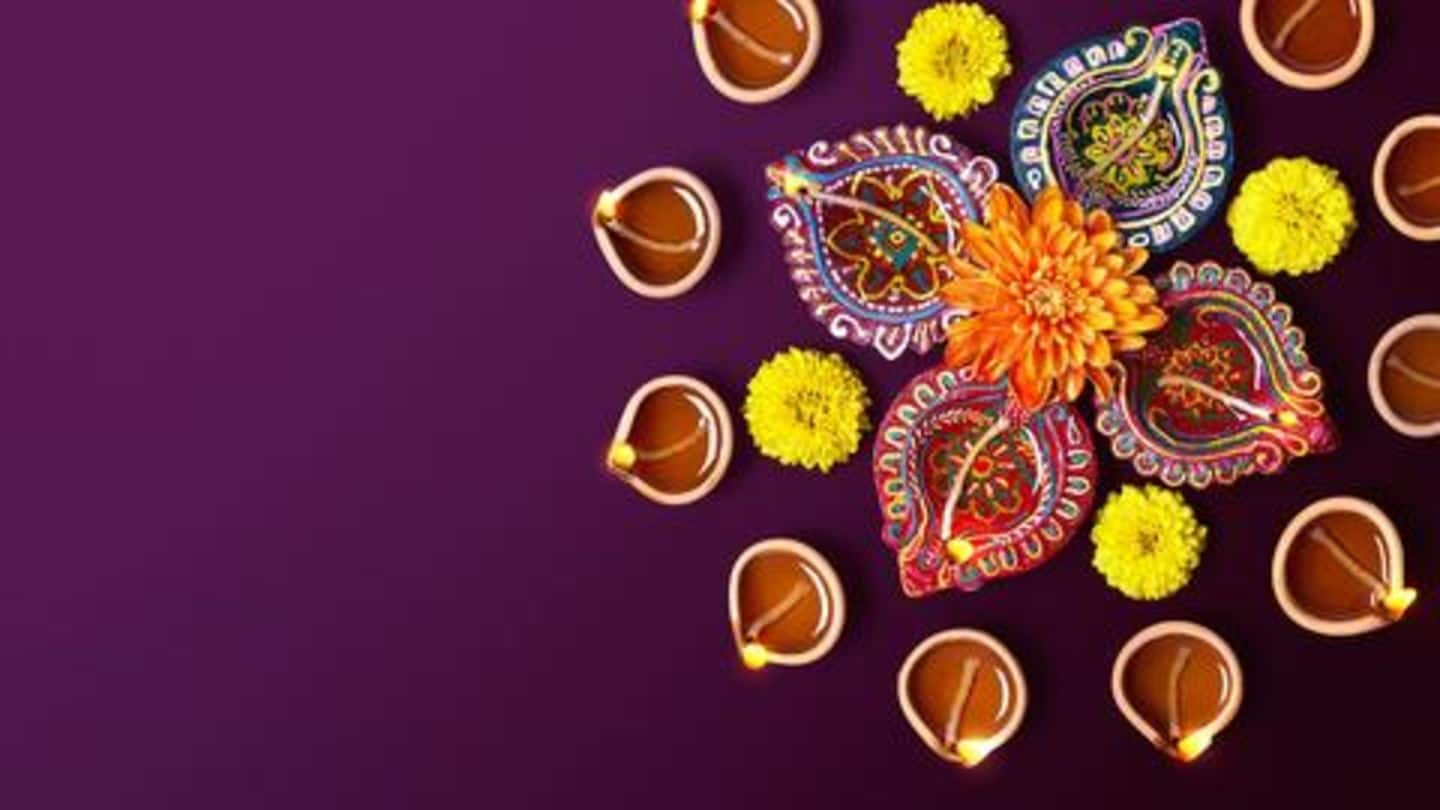
Diwali 2018: Prominence of the 5 days of Diwali, explained
What's the story
We Indians inherently have a thing for festivals and celebrations.
And Diwali, for one, is a festive extravaganza of sorts.
Typically characterized by thalis of delectable sweets, illuminating lights, amazing fireworks and divine pujas, Diwali is celebrated with vigor across cultures and religions, throughout India.
Notably, the festivities traditionally last for a period of 5 days.
Here, we explain the importance of these festivities.
Dhanteras
Celebration of wealth and prosperity
The word 'Dhanteras' originates from two Sanskrit ones- Dhan, meaning wealth, and Teras, ie. the 13th day of the Krishna Paksha of the Ashwin month.
Hindu devotees worship the Goddess of wealth- Lakshmi, and the treasurer of Gods- Kuber, on this day.
People traditionally buy gold and silver ornaments and utensils, as they are known to bring good luck and prosperity in the future.
Chhoti Diwali
Chhoti Diwali: Celebrating victory of good over evil
After Dhanteras and right before Diwali, comes the festival of Chhoti Diwali.
Also called as Naraka Chaturdashi, legend has it that on this very day, Lord Krishna's wife defeated and beheaded Demon King Narakasura.
The festival is specifically celebrated in Maharashtra and South India, where people take (before-sunrise) baths and apply uptan and fragrances to mark the victory of good over evil.
Lakshmi Puja
The most auspicious of all Diwali festivities
On the third night, Lakshmi Pujan is observed.
The Pujan is considered auspicious as on this day, Lord Rama had returned home after 14 years of exile.
The Lakshmi Pujan is believed by the devotees to shower peace, prosperity and wealth.
Devotees typically worship Lord Ganesha, followed by Goddess Lakshmi in three forms- MahaLakshmi, Mahasaraswati and Mahakali, and Kuber.
Govardhan Puja
Govardhan-Puja is celebrated by offering Chhappan Bhog to Lord Krishna
Govardhan Puja is celebrated to mark the day when Lord Krishna saved the people of Gokul from the anger of Lord Indra, by lifting up the Govardhan hill, and lending them shelter.
Also known by the name of Annakut Puja, Govardhan Puja is celebrated to honor Lord Krishna by offering Chhappan Bhog.
Bhai Dooj
On Bhai Dooj, sisters pray for the long-lives of brothers
Falling traditionally on the second day of New Moon, Bhai Dooj celebrates the unconditional bond between brothers and sisters.
Legend has it, that on this day, Yamraj (the God of death) went to visit his sister Yami after a long time, and she welcomed him by applying Tilak on his forehead and preparing a hearty feast.
On Bhai Dooj, sisters pray for brothers' long-lives.